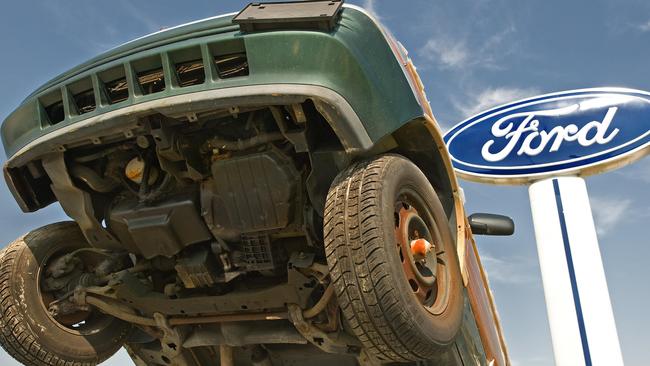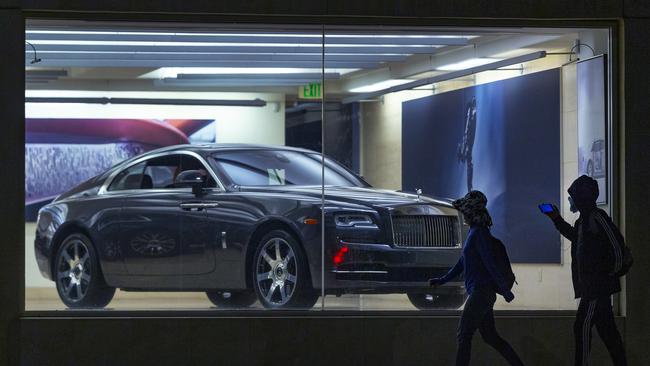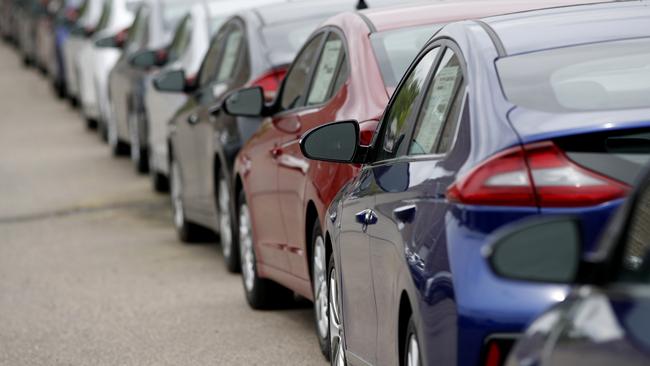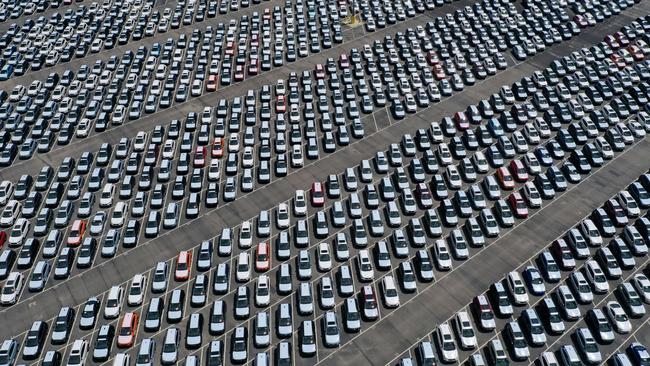New car sales crash by 50 per cent as coronavirus takes hold
More than $1 billion has been wiped from the Australian economy as international car makers call for government assistance.

Coronavirus
Don't miss out on the headlines from Coronavirus. Followed categories will be added to My News.
Exclusive: New car sales crashed to a 20-year low in April, stripping more than $1 billion from the economy and putting thousands of jobs at risk.
While official figures will not be released until Tuesday, confidential data obtained by News Corp Australia shows sales declined by almost 50 per cent compared to April 2019.
April sales represent the 25th consecutive month of decline and the worst monthly sales performance since 2000.
At an average of $45,000 per car, the decline represents $1.57 billion in lost sales.
But the result is better than some estimates.

Mid-month figures released by the Victorian Automobile Chamber of Commerce showed a 70 per cent drop in sales, while industry insiders said the number of people visiting showrooms fell by as much as 90 per cent in April.
Australian Automotive Dealer Association chief executive James Voortman said the figures will send shockwaves through an industry which employs nearly 250,000 people, directly or indirectly.
“It’s going to be a very poor month,” he said.
“I think it’s going to be somewhere between a 40 and 60 per cent decline on April last year … it’s going to be the worst we’ve seen in 30 years.”

Federal Chamber of Automotive Industries chief executive Tony Weber declined to comment.
Companies such as Volkswagen are calling for government assistance to keep the industry afloat by implementing a trade-in incentive scheme under consideration in Europe and the US.
Pitched as a way to stimulate the economy, global giants such as Ford and Volkswagen say so-called “cash for clunkers” programs could make roads cleaner and safer.
Ford’s vice president of sales, Mark LaNeve, told US reporters “cash for clunkers was very effective” in America during the global financial crisis, and that industry representatives were lobbying for similar incentives to offset the economic impact of COVID-19.
Volkswagen’s chief executive Herbert Diess told German television consumers should be incentivised to replace old vehicles with more efficient machines.
While Ford’s Australian arm said there is “no such call” for a local scheme, Michael Bartsch, Australian managing director for Volkswagen, said “any fiscally responsible government program that looks to retire old cars and commercial vehicles is one that Volkswagen Group Australia would support”.

An anonymous automotive dealer group executive agreed the trade-in scheme could work in Australia.
Then-Prime Minister Julia Gillard proposed an Australian “cash for clunkers” scheme for old cars that “spew out a lot of pollution” in 2010.
The $394 million program would have paid motorists $2000 in exchange for taking cars built before 1995 off the road, but was quietly dropped before coming to fruition.
Karen Andrews, Minister Industry, Science and Technology, said “the automotive sector, like most industries around the world, is struggling with the impact of the coronavirus”.
“The Australian Government is working closely with industry representatives to understand the impact and how various stimulus measures are assisting the sector,” she said.
While Ms Andrews did not specifically address the potential for a trade-in scheme, she said the $130 billion “JobKeeper” wage subsidy program attracted registrations of interest from 800,000 businesses.
Mr Bartsch said JobKeeper was an “absolutely critical” instrument for the automotive industry.
But many dealerships have not been eligible for the program, as they are clustered in large groups which turn over more than $1 billion per year.
Businesses which break through the $1 billion mark must demonstrate a 50 per cent drop in revenue to access JobKeeper payments, while smaller companies need to show a 30 per cent shortfall.
“There are around a dozen dealer groups that make $1 billion plus,” Mr Voortman said.
“But asking the dealer in Dubbo to represent a 50 per cent reduction in business before he gets any access to JobKeeper?
“We think that’s pretty much unfair.”
– with Richard Blackburn
Originally published as New car sales crash by 50 per cent as coronavirus takes hold


